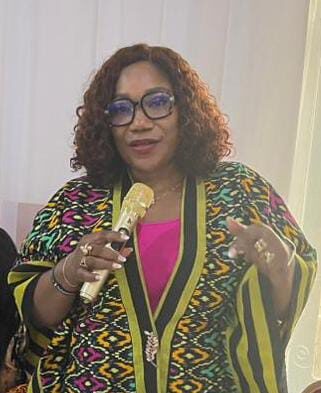The Abia State Agency for the Control of HIV/AIDS (ABSACA) yesterday held a one-day sensitization programme for Persons with Disabilities (PWDs) in Abia South Senatorial District, at Luxury City Hotels, Aba, aimed at improving awareness and strengthening access to HIV/AIDS prevention, treatment, and support services.
Speaking during the opening session, the Director-General of ABSACA, Dr. Uloaku Ukaegbu, described persons with disabilities as a vulnerable and often marginalized group that faces heightened exposure to HIV due to stigma, limited access to information, and social exclusion.
“It is our duty to inform, empower, and educate persons with disabilities so they know where to seek help, get tested, access treatment, and understand preventive measures,” she said.
Dr. Ukaegbu noted that while this was the first sensitization programme for Abia South, similar engagements would be extended to Abia North and Abia Central.
She appreciated the participants for their turnout and assured them that the agency has several inclusive programmes lined up for the state.

In his remarks, the Chairman of the Abia State Commission for Persons with Disabilities, Hon. David Obinna Anyaele, commended ABSACA for recognizing the urgent need to address HIV-related issues within the disability community. He stressed that PWDs are at greater risk due to barriers such as limited access to education, healthcare, communication, and reliable information.
Anyaele emphasized that reproductive health is a fundamental right and urged participants to apply the knowledge gained, not only for personal benefit but also within their communities and religious groups. He reaffirmed his commitment to the welfare and protection of persons with disabilities in Abia State.
The programme featured several educational sessions, including:
- Overview of HIV prevalence in Nigeria
- Basic facts on HIV and AIDS
- Understanding sexually transmitted infections (STIs)
- Personal health and hygiene
- Child abuse and its impact
- Harmful traditional practices
- Adolescent lifestyle and sexuality
- Drug abuse, usage, and trafficking
A Monitoring and Evaluation officer with ABSACA, Mr. Ndubuisi Kanu, provided an overview of the HIV situation in Nigeria, noting that the national HIV prevalence stands at 1.4% among adults aged 15–49, representing about 1.9 million people living with the virus.

He disclosed that Abia State’s prevalence rate of 2.1% is above the national average, with 51,048 currently on treatment across 38+1 facilities in the state offering comprehensive treatment coverage most of them being women. Ukwa East and Obingwa LGAs, both in Abia South, were identified as having the highest prevalence in the state.
Kanu reiterated the UNAIDS 95-95-95 targets, which aim for 95% of people living with HIV to know their status, 95% of those diagnosed to be on treatment, and 95% of those on treatment to achieve viral suppression. He encouraged community participation to boost awareness and uptake of services, adding that the collective goal is to end AIDS as a public health threat by 2030.
Presenting a lecture on adolescent sexual behaviour, Dr. Chinedu Elvire stressed the importance of connecting with young people in order to guide them effectively. She urged parents and caregivers to channel their influence early and appropriately.

Another facilitator, Mr. Chinedu Iro, discussed child abuse, describing it as any form of mistreatment or harm inflicted on a child by a caregiver. He explained the four major categories of abuse, physical, sexual, emotional, and neglect, adding that certain acts, such as bullying, may overlap categories.
Iro also noted that a child who dies from abuse is termed a victim, while one who survives is considered a survivor, with the adult responsible identified as the perpetrator.
A Question-and-Answer session followed, during which participants asked questions and offered contributions to improve the programme’s effectiveness.
Those in attendance included persons with limb, visual, hearing, and speech impairments, as well as individuals with albinism. Sign language interpreters were present to aid communication for participants with hearing impairments.

Dignitaries present were Dr. Uloaku Ukaegbu, Hon. David Obinna Anyaele, Dr. Chinedu Elvire, Mr. Chinedu Iro, Mr. Ndubuisi Kanu, ABSACA PRO Mr. Okezie Uwakwe, Mrs. Ijeoma Okonkwo (Commissioner for Persons with Albinism), and other senior officials of the agency.
By Chinedu Kelechi, Aba

























